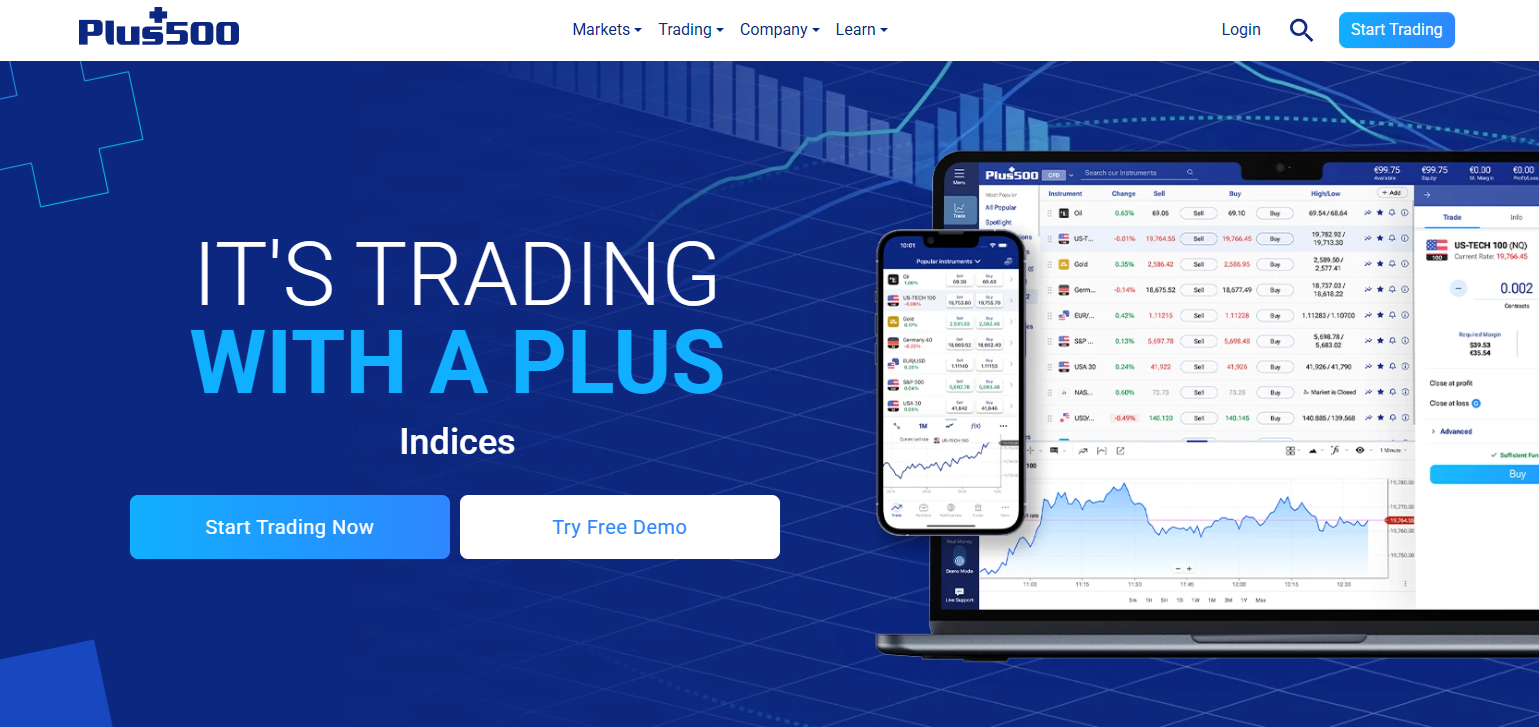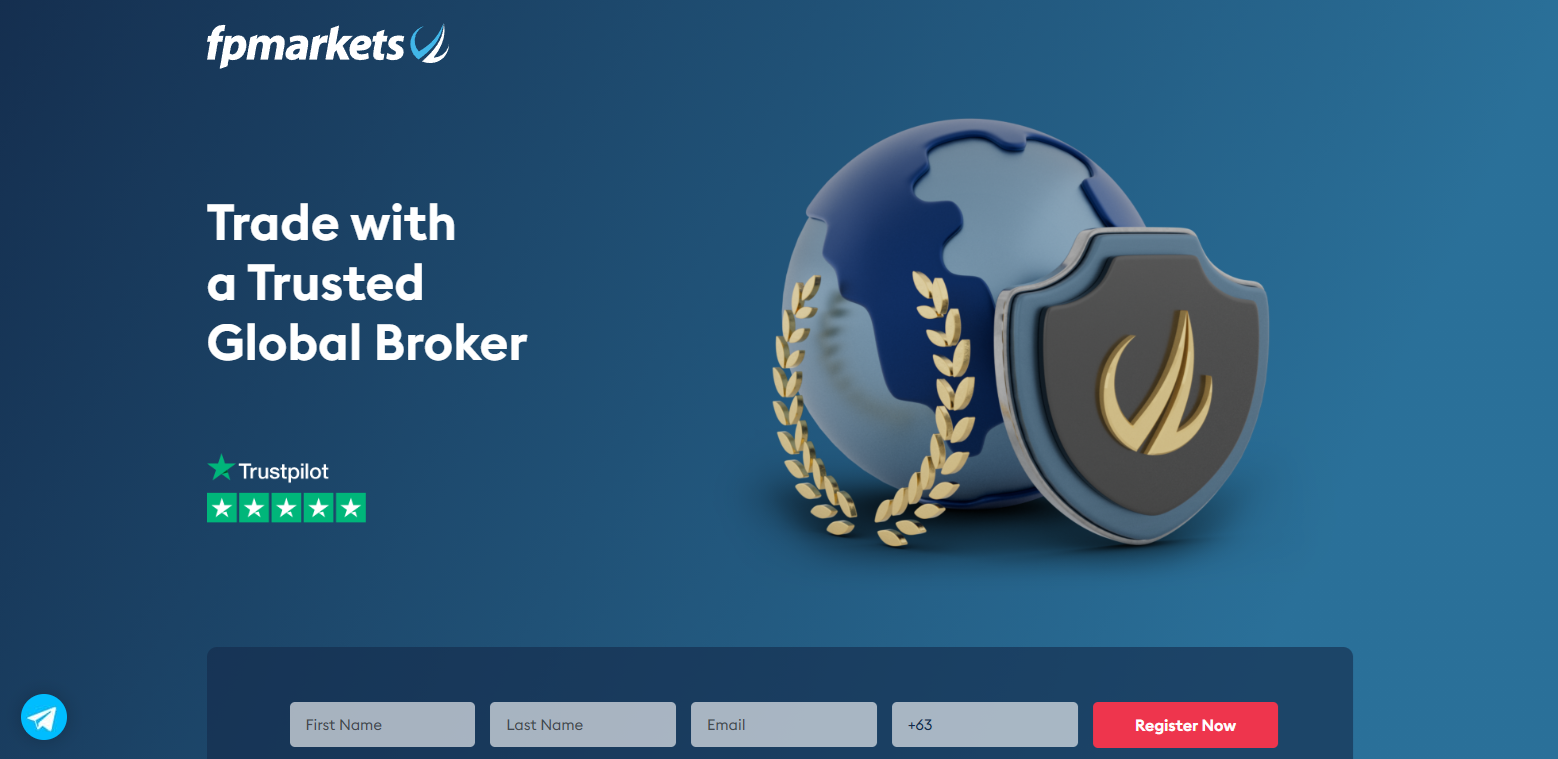Forex trading is an intricate part of the global financial ecosystem with a daily turnover in the trillions of dollars. A region that stands out for its robust Forex landscape is Australia. This article takes a deep dive into the world of Australian Forex brokers, demystifying their history, regulatory oversight, the critical factors to consider when choosing one, and the leading brokers in the landscape.
History of Trading in Australia

The genesis of financial trading in Australia goes back to the mid-19th century with the establishment of the Australian Securities Exchange (ASX). However, the Forex market in Australia, as we know it today, took form in the late 1990s. This growth trajectory was the result of two main global shifts.
The first was the digitization of financial transactions, and the second was the deregulation of financial markets globally. This combination led to a boom in online trading platforms, ultimately opening the doors to retail investors, who could now participate in the Forex market alongside large institutions.
As the Internet infrastructure expanded and advanced, so did the Forex market in Australia. Today, Australia stands as a significant hub for Forex trading, attracting retail and institutional traders worldwide. This is due to its strong regulatory environment, sophisticated financial infrastructure, and a rich palette of Forex broker offerings.
Forex Trading Regulation in Australia
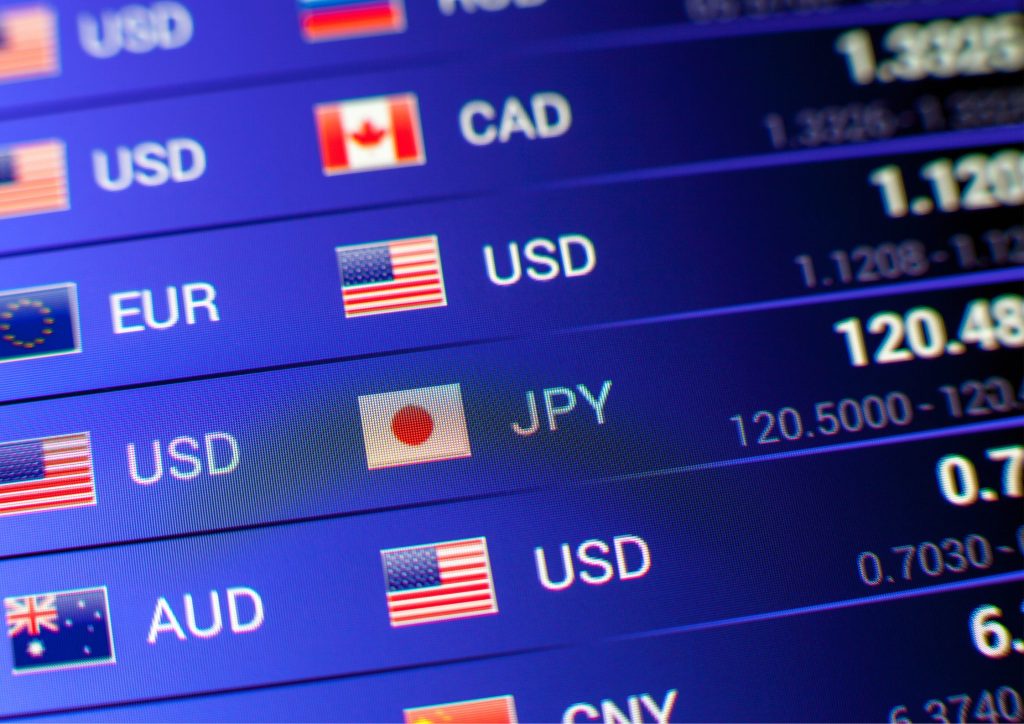
Regulation plays a pivotal role in maintaining trust, transparency, and integrity in the financial market. In Australia, the Australian Securities and Investments Commission (ASIC) serves as the regulatory body for Forex trading. The ASIC’s mandate involves enforcing financial laws and overseeing financial organizations to protect consumers, investors, and creditors.
ASIC-regulated brokers must abide by stringent rules. These include maintaining a minimum net tangible asset requirement and segregating client funds from operational capital. The segregation of funds provides additional security to traders, ensuring their money cannot be used by the broker for its operations, thus providing a safety net in the event of broker insolvency.
How to Choose a Forex Broker in Australia

When navigating the myriad of choices in the Australian Forex market, there are several crucial factors to consider:
Regulation
A broker’s regulatory status is the most critical factor. An ASIC-regulated broker provides a layer of credibility and security, protecting traders from fraudulent activities and ensuring fair trade execution.
Trading Platforms
User-friendly and reliable trading platforms are vital. Consider whether the broker offers robust trading platforms like MetaTrader 4 or 5, equipped with the necessary trading tools.
Account Types
A good broker should offer a variety of account types catering to different trading styles and investment sizes. Look for brokers that provide flexibility in terms of spreads, leverage, and minimum deposit requirements.
Customer Service
The quality of customer service can make or break your trading experience. Opt for brokers that offer efficient, responsive, and multilingual customer service.
Fees and Commissions
A close examination of the cost of trading is vital. Brokers earn from spreads (the difference between the buying and selling price), and commissions per trade. Compare these rates, alongside any additional or hidden fees, to ensure you’re getting a fair deal.
Top Australian Forex Brokers
Let’s delve deeper into the offerings of five best forex brokers in Australian
#1. Avatrade
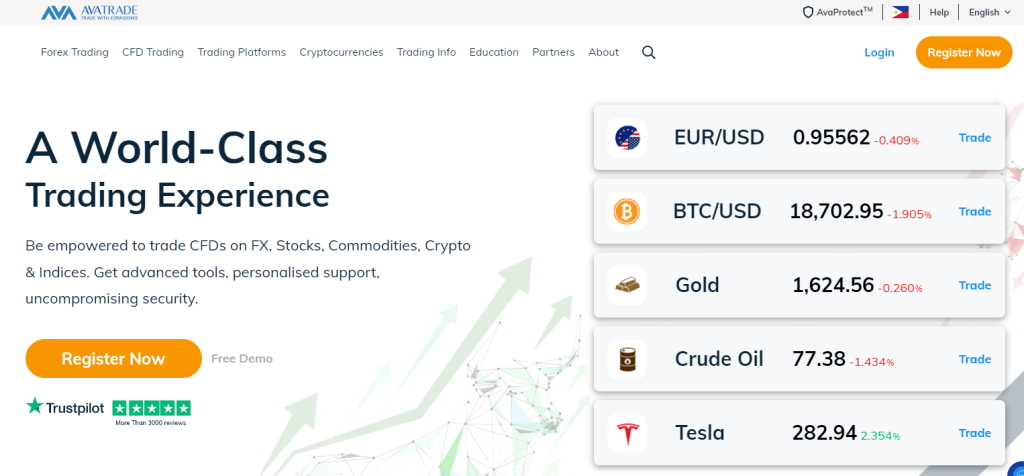
What is Avatrade?
AvaTrade is a globally recognized Forex and CFD broker, established in 2006. The company operates under the regulation of several financial authorities globally, including the Australian Securities and Investments Commission (ASIC). AvaTrade offers trading on a variety of assets, including Forex, commodities, indices, stocks, and cryptocurrencies. The broker is well-known for its robust selection of trading platforms, including its proprietary AvaTradeGo and the popular MetaTrader 4 and 5 platforms.
Advantages and Disadvantages of Trading with Avatrade
Commissions and Fees
AvaTrade operates on a spread-only basis. This means they do not charge a commission on trades, and their earning comes from the spreads. However, an inactivity fee applies after three months of account dormancy, which successful traders should keep in mind.
#2. Plus500
What is Plus500?
Plus500 is a leading fintech firm offering a proprietary trading platform that provides Australian clients access to Contracts for Difference (CFDs) across various asset classes, including forex, indices, commodities, cryptocurrencies, and shares. The platform is user-friendly and available on web, desktop, and mobile devices, catering to both novice and experienced traders. In Australia, Plus500 operates through its subsidiary, Plus500AU Pty Ltd, which is licensed by the Australian Securities and Investments Commission (ASIC) under AFSL #417727, ensuring compliance with stringent regulatory standards. The company’s commitment to competitive spreads, advanced risk management tools, and a demo account for practice makes it an attractive choice for traders seeking a reliable and cost-effective brokerage service.
Advantages and Disadvantages of Plus500
Commissions and Fees
Plus500 primarily earns through the market spread, meaning it does not charge commissions on trades. However, traders should be aware of certain additional fees: an overnight funding fee is applied when positions are held open past a specified time; a currency conversion fee of up to 0.7% is charged for trades on instruments denominated in a currency different from the account’s base currency; and an inactivity fee of up to USD 10 per month is levied if there is no account login activity for a period of at least three months. Notably, Plus500 does not impose deposit or withdrawal fees, but traders should be mindful of potential charges from payment providers or banks, especially in cases of international transactions or currency conversions.
OPEN AN ACCOUNT NOW WITH PLUS500 AND GET YOUR WELCOME BONUS
OPEN A DEMO ACCOUNT ON PLUS500
#3. FP Markets
What is FP Markets?
FP Markets, established in 2005, is a leading Australian Forex and CFD broker offering access to a wide range of financial instruments, including forex, stocks, indices, commodities, and cryptocurrencies. The broker is regulated by the Australian Securities and Investments Commission (ASIC), ensuring adherence to stringent financial standards and providing clients with a secure trading environment. FP Markets is renowned for its tight spreads, fast execution speeds, and advanced trading platforms such as MetaTrader 4, MetaTrader 5, and cTrader, making it one of the top choices among Australian Forex brokers.
Advantages and Disadvantages of Trading with FP Markets
Commissions and Fees
In Australia, FP Markets offers competitive fees and commissions tailored to different account types. The Standard Account features zero commissions, with costs incorporated into the spread, averaging 1.2 pips for major currency pairs. The Raw Account provides spreads from 0.0 pips, with a commission of $3 per lot per side. For equity CFDs, commissions start at 0.05% per side, with a minimum charge of 5 AUD. Notably, FP Markets does not impose inactivity or account fees, except for the IRESS Trader platform, which carries a monthly fee of AUD 55, waived if certain trading thresholds are met.
#4. EasyMarkets
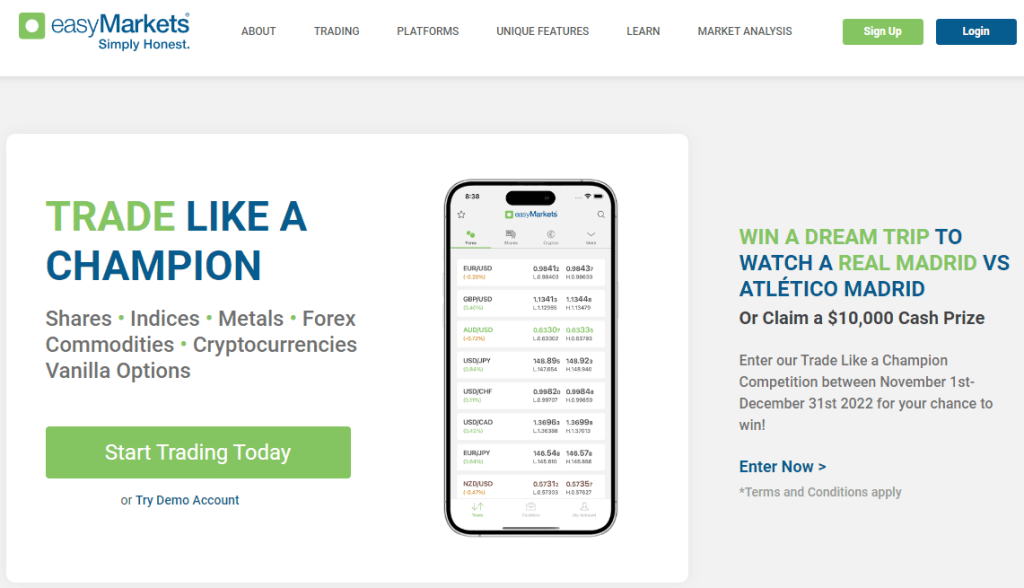
What is EasyMarkets?
EasyMarkets, founded in 2001, is a Forex and CFD broker headquartered in Cyprus and regulated by ASIC and CySEC. Known for its commitment to simplicity and trader protection, EasyMarkets provides trading on various assets such as Forex, commodities, indices, shares, and cryptocurrencies. It offers its proprietary EasyMarkets platform, along with the industry-standard MetaTrader 4.
Advantages and Disadvantages of Trading with EasyMarkets
Commissions and Fees
EasyMarkets operates on a spread-only model. While their spreads are slightly higher than other brokers, they do not charge additional trading commissions.
#5. FPMarkets
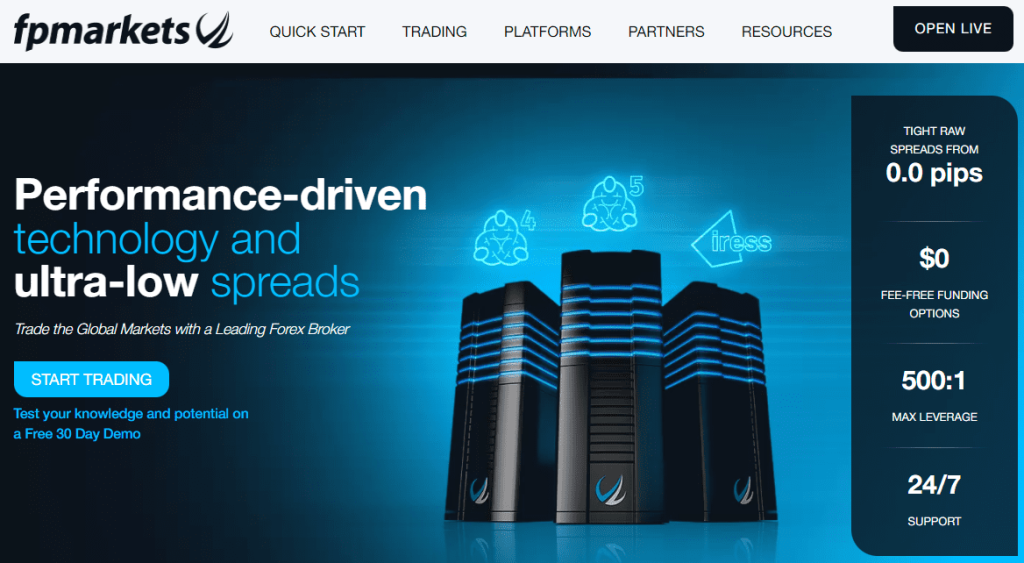
What is FPMarkets?
FPMarkets is an Australian-based Forex and CFD broker that has been operating since 2005. It is regulated by ASIC and the Cyprus Securities and Exchange Commission (CySEC). FPMarkets is known for its Direct Market Access (DMA) pricing and fast execution speeds. It offers a variety of platforms, including MetaTrader 4, MetaTrader 5, and IRESS, a platform for share trading. The broker offers trading on a wide array of assets, including Forex, indices, commodities, shares, and cryptocurrencies.
Advantages and Disadvantages of Trading with FPMarkets
Commissions and Fees
FPMarkets charges a commission on its ECN accounts, offering very competitive spreads. However, the standard account operates on a spread-only model.
The Australian Forex Trading Landscape

The Australian Forex brokers have dramatically transformed the country’s trading landscape. Thanks to their innovative trading platforms, Forex trading has become more accessible, secure, and profitable for retail and institutional traders alike.
The trading platforms offered by these brokers have made Forex trading less complicated and more straightforward. Each platform comes with a unique set of tools and features designed to help traders make informed decisions. MetaTrader 4 and MetaTrader 5, for instance, are widely popular among traders for their user-friendly interface, advanced charting tools, and automated trading features.
These Forex trading platforms are where you create your Forex trading account. The trading account acts as your gateway to the Forex market, allowing you to buy or sell currency pairs. Major currency pairs such as EUR/USD, USD/JPY, GBP/USD, and USD/CHF are among the most traded on these platforms.
Not only are Australian Forex brokers offering exceptional platforms, but they also consistently rank among the best Forex brokers globally. This is due to their commitment to providing a secure trading environment, top-tier customer service, competitive spreads, and a wide range of trading instruments.
Forex trading is legal in Australia, governed by the strict regulations set by ASIC. Traders can therefore confidently engage in currency trading, knowing they are protected by the law.
However, like any other financial market, Forex trading is not devoid of risks. The market is highly volatile, and prices can fluctuate rapidly due to various economic events. As a result, traders can sometimes lose money when trading Forex. It is crucial to understand the risks involved and use risk management tools such as stop loss and take profit orders to protect your trading capital.
Moreover, having a sound trading strategy is vital when trading Forex. A trading strategy helps you identify when to enter and exit trades and how to manage your risk. It also helps to keep emotions at bay, which is crucial for maintaining discipline and consistency in trading.
In conclusion, Australian Forex brokers provide a comprehensive and secure trading environment for traders. Their advanced trading platforms, diverse trading account options, and strong regulatory oversight make them a preferred choice for both beginner and experienced traders. Whether you are interested in currency trading, trading major currency pairs, or exploring other financial markets, these brokers offer a reliable pathway to potentially profitable trading experiences.
Conclusion
Australian Forex brokers operate within a robust regulatory framework provided by ASIC, offering experienced traders a secure and reliable trading environment. While AvaTrade, XM, IC Markets, EasyMarkets, and FPMarkets all offer distinct advantages, it’s critical for traders to evaluate their individual trading needs and goals when selecting a broker. Consider the broker’s regulation, Trading platforms, account types, customer service, and trading costs to make an informed decision.
FAQs: Australian Forex Brokers
Why should I trade Forex with an Australian broker?
Trading with an Australian broker means you are protected by the stringent regulatory oversight of ASIC, ensuring a safe and secure trading environment. Additionally, Australian brokers offer competitive trading conditions, advanced trading platforms, and exceptional customer service.
Are Australian Forex brokers safe?
Yes, Australian Forex brokers are considered safe as they are regulated by ASIC, one of the world’s top financial regulators. ASIC mandates brokers to adhere to strict regulatory standards, including capital adequacy requirements and segregation of client funds.
What is the minimum deposit required by Australian Forex brokers?
The minimum deposit varies between brokers. While some brokers allow you to start trading with as little as $5, others may require a higher initial deposit. It’s important to review the broker’s deposit requirements before opening an account.
Do Australian Forex brokers charge fees?
Yes, brokers earn from spreads and may charge commissions on trades. Some brokers might also charge fees for deposits, withdrawals, and inactivity. Always review the fee structure before selecting a broker.
Can I trade assets other than Forex with Australian brokers?
Yes, most Australian brokers offer a variety of financial instruments beyond Forex, including commodities, indices, stocks, futures, and cryptocurrencies. Always verify the range of instruments offered by the broker.

